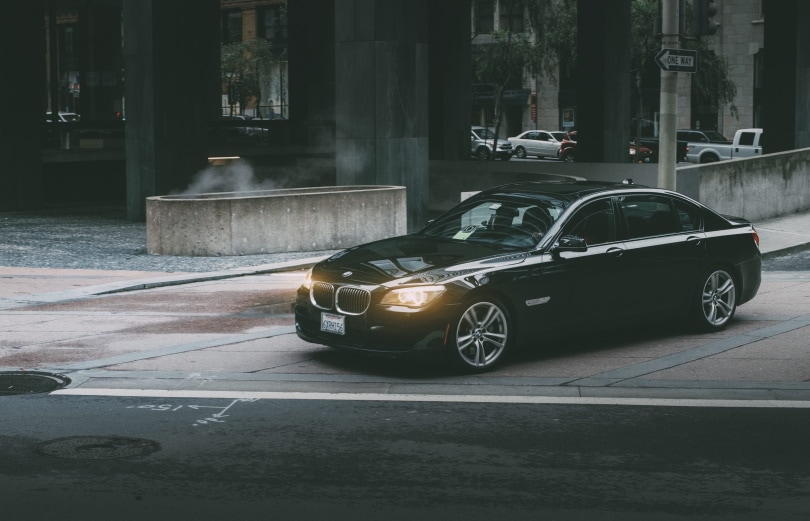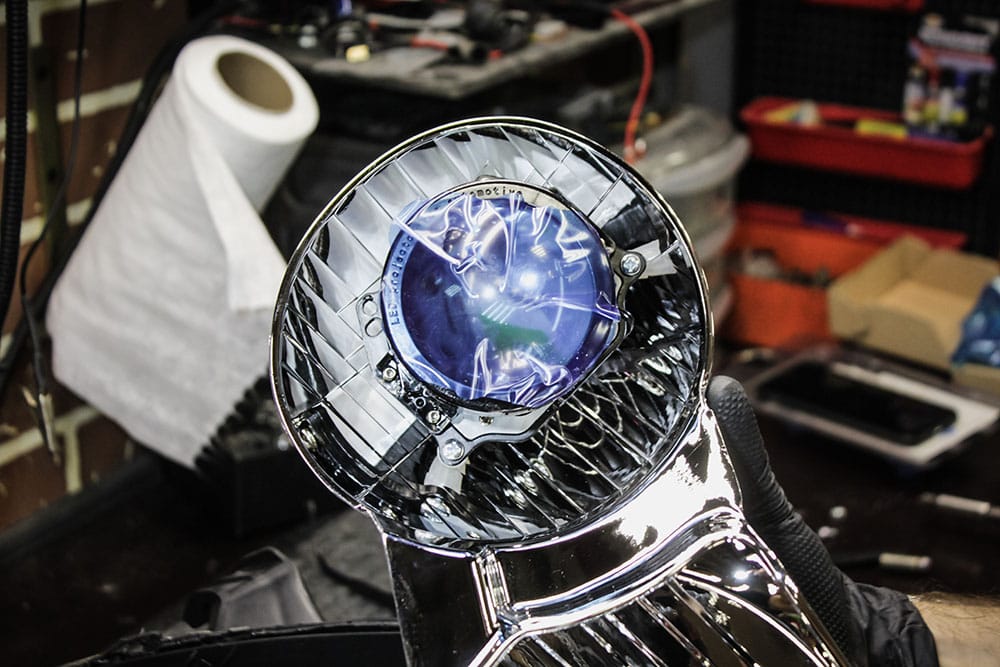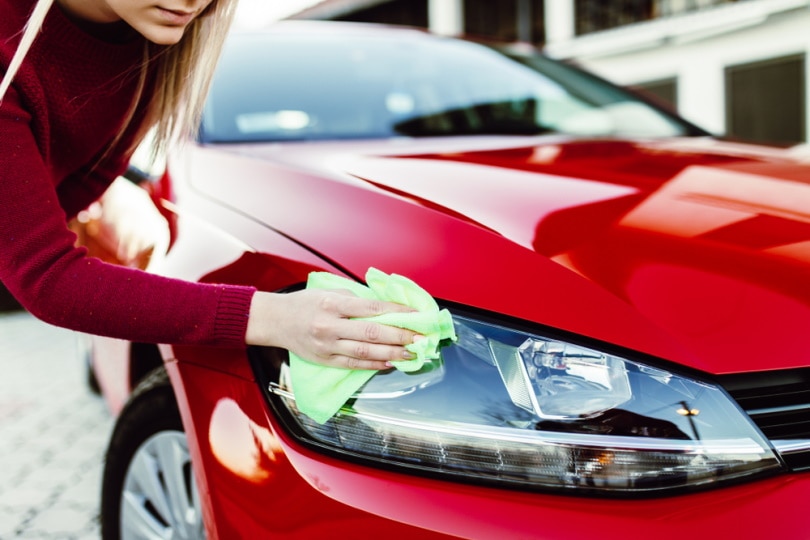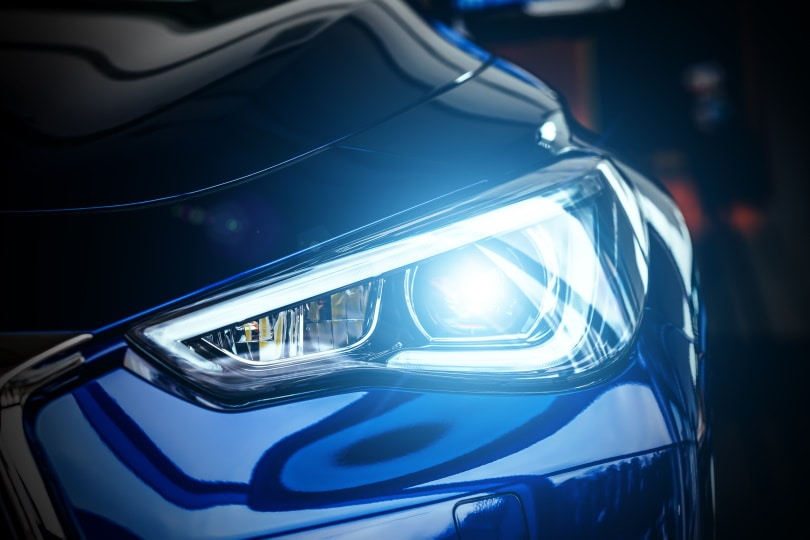How Long do Headlights Last? (Average and Max Lifespan)
-
Pete Ortiz
- Last updated:

Maybe your headlights are getting dimmer, or perhaps they’re starting to flicker. Either way, you’re probably wondering how long headlights are supposed to last. At one point, the answer was easy: on average, you could expect your headlights to last from 500 to 1,000 hours. Much has changed with headlight technology. Now, you can expect a lifespan of up to 30,000 hours from some headlight bulbs!
There is no standard bulb on any vehicle from the factory. So, below we will discuss a few of the most common headlights and the lifespan you can expect from each one.
Types of Headlights
There are four main headlights on the market today. We will go over each of them and how they work to help you decide whether you want to keep your vehicle stock or whether an upgrade is worth it.

Halogen
- Average Lifespan: 500–1,000 hours
At one point, pretty much every headlight was equipped with halogen bulbs. The tungsten filament that heats up to create light is prone to burning out, hence the shorter lifespan than other popular bulbs.
High-Intensity Discharge (HID)
- Average Lifespan: 2,000 hours
HID bulbs also use xenon gas. But unlike a tungsten-xenon bulb, the HID relies on an electrode rather than a tungsten filament. The electrode is a similar idea to a spark plug. However, instead of igniting fuel and air, it excites the xenon gas, causing it to emit a bright white light.
Xenon

- Average Lifespan: 10,000 hours
Like a halogen bulb, xenon bulbs also create light using a tungsten filament. The difference is that xenon gas does a much better job at slowing the evaporation of the tungsten filament down. So, they last significantly longer than both halogen and HID bulbs. Also, xenon gas emits a bright white light when filament heats up and excites the gas, so they are way brighter than their halogen counterpart.
Light Emitting Diode (LED)
- Average Lifespan: 30,000 hours
Unlike the other bulbs, LEDs do not work by exciting a gas to emit light. They work by sending an electrical current through a diode. As the current passes through the diode, it releases protons we see as light. In addition, LEDs have a long life. They are also super efficient and are available in multiple colors. However, they are not as bright as an HID or xenon headlight bulb.
Upgrading Headlights
These average lifespans are great to know, but real life often gets in the way. When one headlight bulb burns out, that’s a prime time to think about an upgrade for both. Or, upgrading isn’t hard if you’re just sick of having stock bulbs. Unless your vehicle has better-than-average headlights, almost anything aftermarket you put in will be brighter.
One thing to keep in mind is that if your bulb failed way earlier than expected, there might be something else wrong. For example, if your headlights have LED bulbs that burnt out after a couple of months, either the bulb was defective, or something is potentially wrong in the harness. So, that’s worth investigating before installing new bulbs.
The two most common upgrades for vehicle headlights are either HID or LED. Typically, HID has a broader brightness range, but an LED bulb will last much longer. Either bulb type will be a massive upgrade over what was likely a halogen bulb from stock—even if it’s a bright halogen, you’ll notice the difference. There are some reasonably bright halogen bulbs on the market, so it might surprise you to know your vehicle has them.

FAQs
Do headlights get dimmer as they age?
Headlights burning out while you’re driving at night is a dangerous situation. Luckily, there are typically warning signs before this happens. One telltale sign is that they begin to get dimmer as they age. Suppose you notice a significant difference in how bright your headlights are. In that case, it’s probably time to think about replacing or upgrading them.
How do you make your headlights last longer?
Unfortunately, there isn’t anything you can do to make your headlights last longer other than not using them, which isn’t a practical option. The best way to prevent spending money in the long run on headlights is to buy high-quality bulbs from a reputable dealer. Another way to ensure a long-lasting bulb is to upgrade to LED bulbs.

Should you replace both headlights at the same time?
Both headlights are rated for the same number of hours. So, if one burns out, the other is likely not far behind. Other than cheap halogen bulbs, most LED or HID bulbs only come in pairs. Nothing is saying you can’t keep the working bulb as a backup, but it’s best practice to replace both at the same time.
Conclusion
Like many things car-related, there are almost countless options available for headlights. For example, there are many brightness levels and different physical dimensions. If you’re not familiar with what you need, a visit to your local auto parts store will give you all the info you need. The parts people will have lookups to tell you which particular size of bulb your headlights take. Then they can offer you various types and recommendations based on your needs.
Featured Image Credit: WStudio, Shutterstock
Contents



